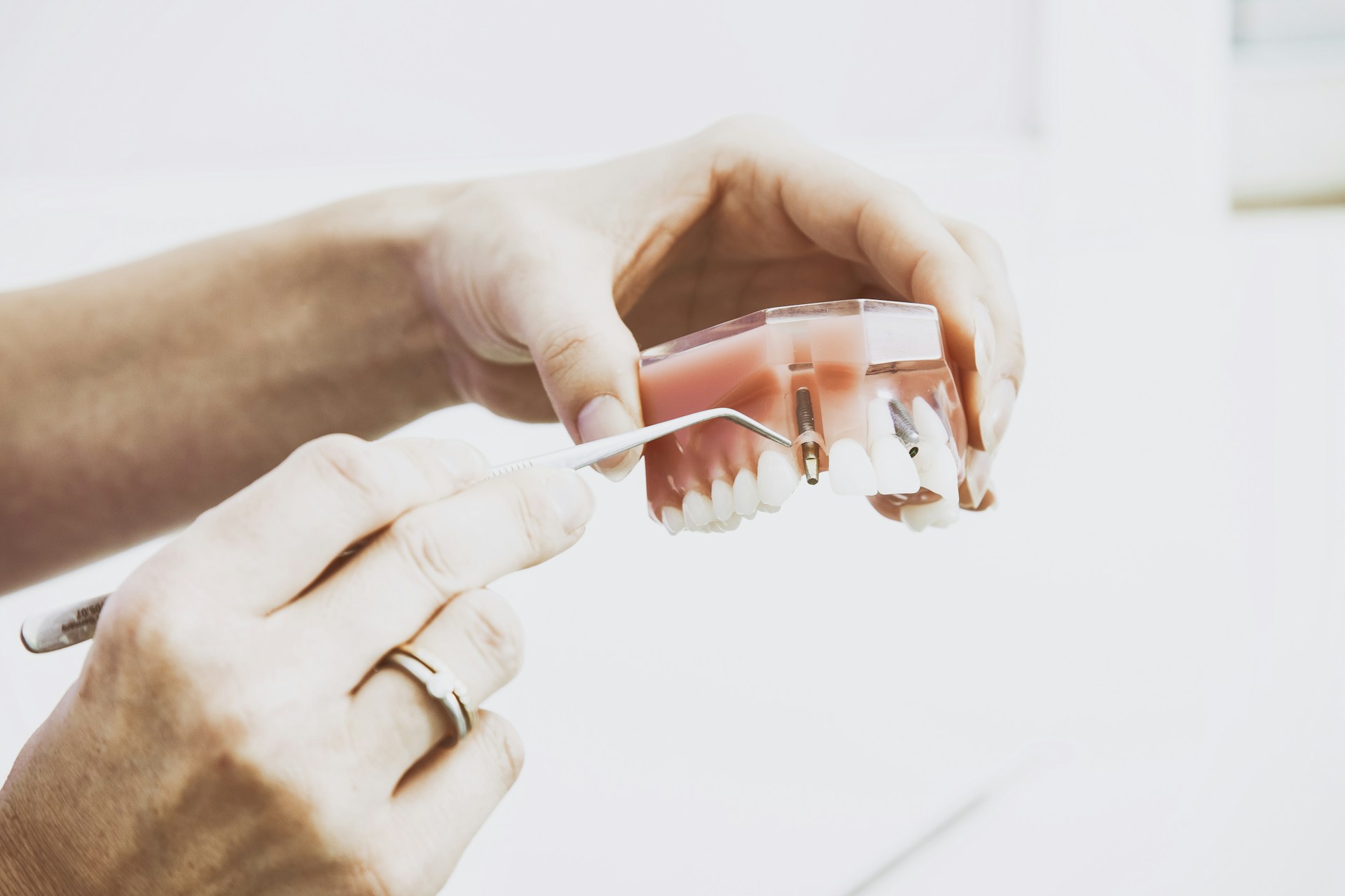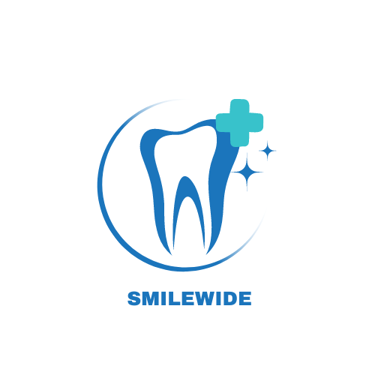SMILE- It costs nothing !!!
Overcome Dental Anxiety: Tips and Techniques for a Comfortable Dental Experience
Discover effective strategies to manage fear and ensure a comfortable dental experience. Explore the benefits of sedation dentistry for those with high levels of anxiety. Overcome dental anxiety wi...
5/28/20247 min read
Understanding Dental Anxiety
Dental anxiety, a pervasive issue affecting a significant portion of the population, refers to the fear or stress associated with dental visits. This anxiety can range from mild unease to severe phobia, resulting in avoidance of dental care altogether.
According to the American Dental Association, an estimated 22% of adults experience some form of dental anxiety, with 12% suffering from extreme dental fear. The impact of dental anxiety extends beyond oral health, influencing overall physical and mental well-being.
Several factors contribute to the development of dental anxiety. Past traumatic experiences, such as painful procedures or negative interactions with dental professionals, often leave lasting impressions.
The fear of pain is another common cause, especially for those who have low pain tolerance or sensitivity to dental instruments. Feelings of helplessness during dental procedures, where individuals feel they lack control, can also exacerbate anxiety.
Additionally, the sound of dental tools, the clinical environment, and even the anticipation of bad news about one's dental health can trigger significant stress.
The prevalence of dental anxiety underscores its importance. Studies have shown that individuals with dental anxiety are more likely to delay or avoid dental visits, leading to deteriorating oral health.
This neglect can result in severe dental issues, such as tooth decay, gum disease, and ultimately, tooth loss. The consequences are not just physical; the psychological impact includes increased stress, low self-esteem, and even social isolation due to embarrassment over dental appearance.
Addressing dental anxiety is crucial for maintaining both oral and overall health. By understanding the common causes and the widespread nature of this issue, individuals and professionals alike can work towards creating a more supportive and fear-free dental experience.
Efforts to reduce dental anxiety can lead to more consistent dental care, improved oral health outcomes, and enhanced quality of life.
Communication with Your Dentist
Effective communication with your dentist is pivotal in managing dental anxiety. Establishing a transparent dialogue about your fears and anxieties can significantly improve your dental care experience.
It is essential to convey your specific concerns and previous negative experiences, if any, to your dental care provider. This information allows the dentist to tailor their approach, ensuring you receive the most comfortable care possible.
When discussing your anxiety, do not hesitate to ask for a step-by-step explanation of any procedures you may undergo. Knowing what to expect can alleviate some of the fear of the unknown. A detailed walkthrough of the process, including sounds, sensations, and timelines, can help demystify the experience and make it more manageable.
Another effective strategy is to establish a signal system to use when you need a break during a procedure. For instance, raising your hand can be a prearranged sign for the dentist to pause. This simple yet powerful tool can give you a sense of control over the situation, making you feel more at ease.
Building a trusting relationship with your dentist is equally important. Trust is the foundation of any effective patient-provider relationship. Take the time to find a dental professional who listens to your concerns, respects your limits, and genuinely cares about your well-being.
A compassionate and patient-focused dentist can make a significant difference in your comfort level during visits.
Ultimately, open communication fosters a sense of partnership in your dental care. By discussing your anxieties candidly, requesting detailed explanations, utilizing signal systems, and building trust with your dentist, you can create a more positive and less stressful dental experience.
Techniques to Manage Anxiety Before the visit
Implementing effective strategies to manage anxiety before even stepping into the dental office can significantly improve your overall experience.
One such technique is deep breathing exercises. By focusing on slow, controlled breaths, you can activate the body's relaxation response, reducing stress and anxiety. Practicing deep breathing for a few minutes each day leading up to your appointment can make a notable difference.
Mindfulness practices are another valuable tool in managing dental anxiety. Mindfulness involves staying present in the moment and observing your thoughts and feelings without judgment. Techniques such as guided meditation, progressive muscle relaxation, or simply paying attention to your senses can help calm your mind. These practices can be particularly beneficial in the days leading up to your visit, providing a sense of control and tranquility.
Cognitive-behavioral techniques can also be highly effective. This method involves identifying and challenging negative thoughts related to dental visits. By reframing these thoughts and replacing them with positive affirmations, you can reduce the power they have over your emotions.
For instance, instead of thinking "This will be painful," you might tell yourself "The dentist is there to help me, and I can handle this."
Listening to calming music is another excellent way to alleviate anxiety. Creating a playlist of soothing tunes that you can listen to before and even during your journey to the dental office can help distract and relax you.
Music has been shown to lower heart rates and reduce stress levels, making it a simple yet powerful tool for managing dental anxiety.
Finally, consider scheduling your dental appointments in the morning. Early appointments can minimize waiting time, which often contributes to increased stress and anxiety. By addressing your dental needs first thing in the day, you can prevent anxiety from building up and spend the rest of your day feeling relieved and accomplished.
In-Office Techniques to Reduce Anxiety
There are several in-office techniques that can significantly alleviate this discomfort. One effective method is the use of noise-canceling headphones. These devices help to drown out the sounds of dental equipment, which are often a source of anxiety.
By listening to calming music or even guided meditations, patients can find a sense of tranquility during their procedures.
Aromatherapy is also gaining popularity as a means to reduce dental anxiety. Essential oils such as lavender, chamomile, and peppermint have calming properties that can help to soothe nerves. Diffusing these scents in the office or applying them to a personal inhaler can create a more relaxed atmosphere for patients.
Having a friend or family member present during the visit can provide a significant emotional boost. The presence of a trusted companion can offer reassurance and make the experience feel less daunting. This support system can be especially comforting for children or individuals with extreme dental anxiety.
The overall environment of the dental office plays a crucial role in managing anxiety. A welcoming and comfortable setting can make a substantial difference. Soft lighting, comfortable seating, and a friendly staff can contribute to a more pleasant experience.
Many dental offices are now designed with these elements in mind, aiming to create a space that feels less clinical and more inviting.
Implementing these in-office techniques can transform the dental experience, making it more manageable for those who struggle with anxiety. By focusing on the comfort and well-being of patients, dental professionals can ensure a more positive and stress-free visit.
The Role of Sedation Dentistry
Sedation dentistry has become an invaluable tool for managing dental anxiety, ensuring that patients receive necessary care without the associated stress.
Various types of sedation are available, each tailored to different levels of anxiety and medical needs. Among these, nitrous oxide, oral sedation, and intravenous (IV) sedation are the most commonly used.
Nitrous oxide, often referred to as "laughing gas," is a mild sedative inhaled through a small mask placed over the nose. It induces a state of relaxation while keeping the patient fully conscious. The effects of nitrous oxide wear off quickly, making it a safe option for most patients, including children and those with mild anxiety.
Oral sedation involves the administration of a sedative medication in pill form, taken prior to the dental appointment. The level of sedation can range from minimal to moderate, depending on the dosage. Patients remain awake but in a deeply relaxed state.
This type of sedation is suitable for individuals with moderate dental anxiety and those undergoing longer or more complex procedures. While generally safe, it requires someone to accompany the patient to and from the appointment due to the lingering effects of the medication.
Intravenous (IV) sedation provides a deeper level of sedation compared to nitrous oxide and oral sedation. Administered directly into the bloodstream, IV sedation allows for quick adjustments in the sedation level and induces a state where the patient is on the verge of unconsciousness.
This method is particularly beneficial for patients with severe dental anxiety or those requiring extensive dental work. The safety profile of IV sedation is high, provided it is administered by a trained professional. However, patients must disclose all medical history and current medications to avoid potential interactions and complications.
In determining the best type of sedation, dentists consider various factors, including the patient's level of anxiety, medical history, and the complexity of the dental procedure. While sedation dentistry is generally safe, potential risks or side effects include respiratory issues, allergic reactions, and prolonged drowsiness.
It is essential for patients to have a thorough consultation with their dentist to discuss these risks and ensure the chosen sedation method aligns with their needs and health status.
Post-Visit Care and Coping Strategies
Managing dental anxiety doesn't end once the dental procedure is over; post-visit care is crucial in ensuring a smooth recovery and reducing any residual anxiety. Following the dentist’s post-procedure care instructions is the first step.
These instructions may include guidelines on oral hygiene, dietary restrictions, and specific activities to avoid. Adhering to these recommendations helps in preventing complications and promotes a quicker recovery, which in turn can alleviate anxiety.
If discomfort or pain persists after the visit, over-the-counter pain relief medications can be beneficial. Medications such as ibuprofen or acetaminophen can help manage pain and reduce inflammation.
Scheduling follow-up appointments is another critical aspect of post-visit care. Regular dental check-ups not only ensure ongoing oral health but also help in building a relationship with the dental care provider. This familiarity can significantly reduce dental anxiety over time.
During these follow-up visits, discussing any concerns or experiences from previous appointments with the dentist can provide reassurance and clarity, further mitigating anxiety.
Reflecting on the positive aspects of the dental visit can also be an effective coping strategy. Acknowledging the successful completion of the procedure and the professional care received can shift focus away from the anxiety.
Keeping a journal to note down positive experiences and progress can be a helpful tool in this regard. Over time, these reflections can build confidence and reduce the fear associated with future dental visits.
In essence, effective post-visit care and coping strategies are integral to managing dental anxiety. By following care instructions, utilizing pain relief methods, maintaining regular dental appointments, and focusing on positive experiences, individuals can significantly reduce their anxiety and foster a healthier relationship with dental care.

Contact Smiles
drdeepi15@gmail.com
Dr. Deepika B.D.S
© 2025 SmileWide Dental. All Rights Reserved.
Have doubts ..?


